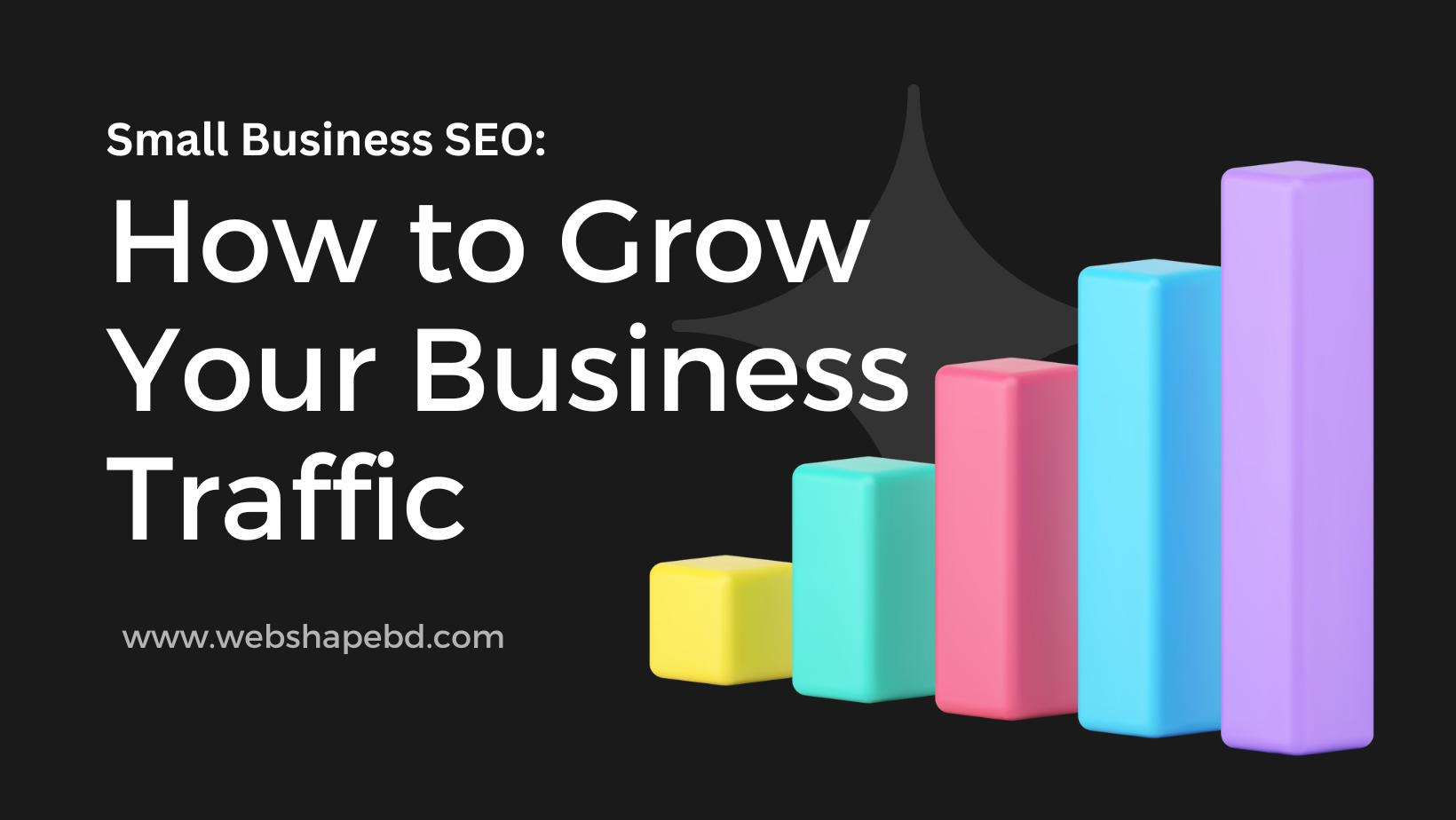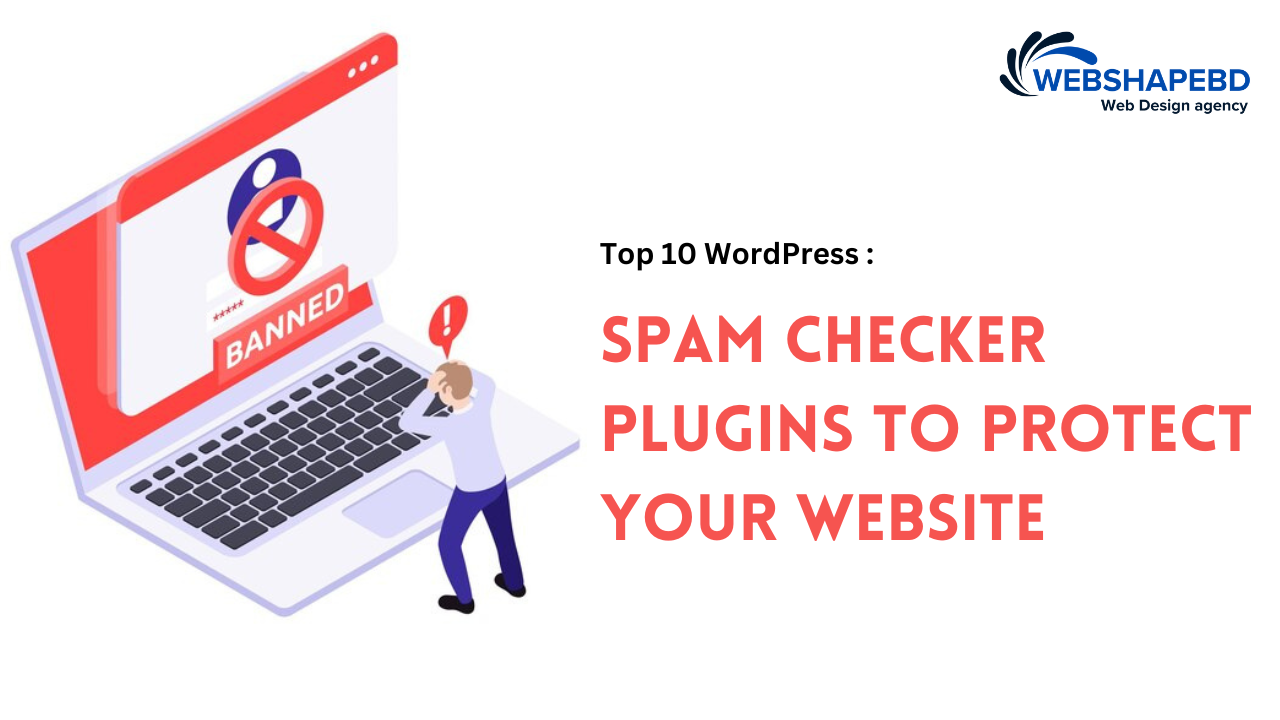Big players now pose a serious threat to small businesses trying to get online visibility. Because of this, it’s critical for small businesses to master local SEO. But like developing a strong small business plan, it all starts with knowing who your target market is and what makes you different from the competitors.
Ninety percent of brands have seen that their ranking in local search results is influenced by online reviews. In general, you do better on Google the more positive reviews you have on your business listings. This is because Google ranks you locally largely based on the caliber of your Google Business Profile.
In this blog post, we’ll break down 11 simple yet powerful tips to boost your business website’s traffic, which helps you shine online and grab a top spot in search results.
What is SEO and How Does it Work?
Making your website more visible online without having to pay for advertisements is the main goal of SEO. Getting your website at the top of Google’s search results is the goal. This implies that more people will notice it when they look up terms associated with your company.
Key factors for great SEO include:
- generating quality content
- using the right keywords
- getting other sites to link back to yours.
Making sure your site loads fast and looks good on mobile devices is important too.
What is Small Business SEO?
Small business SEO means making your small business website more visible on search engines for searches related to what you offer. It’s different from local SEO, which focuses on appearing in location-based searches.
While there’s some overlap, small business SEO has a global reach now because of digital demand. If your small business can sell or provide services anywhere, local SEO might not be your best bet.
SEO matters for small businesses because it boosts organic traffic without the need for costly ads, something every small business needs to consider.
How Can SEO Benefit Small Businesses?
SEO isn’t just for big corporations; it’s a game-changer for small businesses too. By investing in SEO, small businesses like yours can reap several significant benefits that can help you thrive in the online world.
1. Increased visibility
SEO helps small businesses get noticed online by improving their rankings in search engine results. When your website appears higher up on search engine results pages (SERPs), more people are likely to click on it, leading to increased visibility for your business.
2. Cost-effective, targeted marketing
Unlike traditional advertising methods that can be expensive and reach a broad audience, SEO allows small businesses to target specific audiences interested in their products or services. Optimizing your website for relevant keywords draws in users actively seeking what you offer.
3. Increased credibility
Having a strong presence in search engine results instills trust and credibility in your small business. When potential customers see your website ranking highly for relevant search queries, they perceive your business as more trustworthy and authoritative in your industry, which can lead to higher conversion rates and customer loyalty.
4. Competitive advantage
By investing in SEO, small businesses can level the playing field and compete with larger competitors. With the right SEO strategies in place, even smaller businesses can outrank big players in search results, which gains a competitive advantage and attracts more customers to their website.
Why is SEO for Small Businesses Important?
SEO matters for small businesses because it helps them achieve three key things:
- Reach: SEO enables smaller companies to connect with their target market regardless of location.
- Targeting: It allows you to aim for specific niche keywords, to make sure you reach the right audience.
- Effectiveness: SEO is a proven method for businesses of all sizes to attract traffic, leads, and revenue.
Additionally, with SEO, companies can easily track performance, including return on investment. Plus, compared to paid advertising, SEO is incredibly cost-effective, as clicks come at no extra cost.
How To Implement an SEO Strategy for Your Business?
To win at small business SEO, you must show search engines that your business is a top choice for searchers. Here are eleven steps to tweak your web content for search engines:
1. Finding and Using Keywords
The start of any SEO plan is figuring out the key words, or “keywords,” you want your business to be known for. A good keyword strategy involves looking at important keywords—how often they’re searched for, how tough it is to rank for them, and what people are actually looking for when they use them.
2. Get Linked
When another website links to yours, it tells search engines like Google that they trust your site enough to send visitors your way. This trust signals that your website is an authority on its topic. The more of these links you have, the higher your site will rank. Getting these links is called off-page SEO.
3. Think about local SEO
While regular SEO centers on websites, local SEO is all about listings, like Google My Business. These listings pop up in Google Maps searches and local Google results, such as “physical therapy clinic Boston,” rather than general searches.
4. Measure And Analyze Your Results
Unlike quick results from paid ads, seeing the impact of SEO takes time. Search engines like Google might need weeks or even months to notice changes to your site or listing. Major updates to their algorithms, which often cause significant ranking shifts, happen just about every three months.
11 Tips to Do Small Business Local SEO Right
Alright, let’s dive into these tips that’ll give you the lowdown on rocking SEO for your small business.
1. SEO Isn’t Limited to Google Alone
While it’s essential for your small and growing business to have a presence on Google, don’t overlook the potential of other platforms where your audience might be active.
Sites like Amazon, Reddit, Yelp, YouTube, and Instagram have their own SEO strategies and can be equally valuable, if not more so, depending on your target audience. Identify where your efforts will be most fruitful and focus on those platforms to maximize your visibility and engagement.
2. SEO Takes Time but Pays Off
SEO is effective, but it’s not a quick fix. The timeline for seeing results varies based on your starting point. If you’re just beginning your SEO journey, anticipate waiting at least six months to see changes—especially if you’re launching a new website.
Keep in mind that SEO is an ongoing process that gains momentum over time. The groundwork you lay in the initial months sets the stage for future success. The more you invest in SEO, the tougher it becomes for competitors to surpass you.
3. Choose The Right Keywords
When creating online content, choose keywords that directly relate to your business. If you’re unsure which ones to use, try out keyword research tools like Ahrefs, SEMRush, AnswerThePublic, or BuzzSumo.
Many of these tools are affordable. By targeting the right keywords, you make it easier for your ideal audience to discover your content and website.
4. Put People Before Search Engines When Writing Content
Put people before search engines when creating content. Craft captivating, and useful content that includes your target keywords. This approach keeps visitors on your site longer and encourages them to engage with more of your content.
Try addressing common questions related to your business and showcasing solutions your customers are seeking.
5. Make The Most of Local Searches
Local searches can be a goldmine for your small business. When people look for things nearby, they’re often ready to buy. Nearly half of all Google searches have local intent, and a whopping 72% of those who search locally visit a store within five miles of where they are.
6. Get your Google Business Profile Sorted
If there’s just one task you tackle as a small business owner, it should be claiming and sprucing up your Google Business Profile (GBP). This profile is your ticket to being found and understood by potential customers on Google search and maps.
It’s completely free to set up and allows you to share vital information like your contact number, business hours, and what you offer.
7. Get Your Business Listed on Relevant Directories
People don’t just rely on Google to discover small businesses; they also check out popular directories and trusted review sites. Sometimes, even if they start with Google, they’ll end up browsing through a directory that’s highly ranked in search results.
8. Fixing Basic SEO Problems on Your Website Is Crucial
Technical issues can harm your rankings, so ensure your website is in good shape and address any major issues promptly. A simple way to do this is by using an SEO audit tool like Ahrefs’ Site Audit.
You can access this tool for free with an Ahrefs Webmaster Tools (AWT) account. Sign up, follow the steps to scan your site, and then filter the All Issues report for errors.
9. Provide Valuable Product and Service Details to Searchers
Simply having pages dedicated to your products and services isn’t enough; they need to offer the information searchers are looking for. If you understand your customers well, you’re halfway there. But it’s wise to do a bit of research to ensure you’re meeting their needs effectively.
10. Get Some Backlinks
Backlinks are important for ranking your website higher in search results. The tricky part is getting good-quality backlinks, which aren’t easy to come by. (That’s why they’re so valuable!) For small businesses, start by leveraging existing relationships. Here are a few simple ideas:
- Offer testimonials to your suppliers. They might feature them on their websites with a link back to yours.
- Showcase client success stories. If you’ve done a great job for a client, like renovating a local church as a plumber, write about it and let them know. They might share it on their site.
- Reach out to stockist pages. For instance, if your store sells a local craft beer, check if the brewery lists its stockists on its website.
11. Encourage Reviews and Engage with Them
Google recommends small business owners to ask customers for reviews and to reply to them, which helps in building trust. To make it easy, Google suggests creating and sharing a link to your Business Profile with customers.
You can include this link in your “thank you” emails, after customer support interactions, or even on receipts using a link or QR code.
How To Choose Small-Business SEO Services
If you’re unsure about handling SEO on your own, there are plenty of SEO experts ready to assist small businesses with their strategies. Finding the right agency or individual is just as crucial as having the right strategy in place.
While hiring an in-house SEO expert might not be feasible for your small business, there are alternative options to meet your SEO needs. Many agencies offer various packages tailored to small businesses, and some may even offer flat-rate contracts based on your specific requirements.
Quality matters when it comes to SEO services, so be sure to ask potential agencies the right questions:
- What niches do you specialize in?
- What does your monthly process entail?
- What’s your approach to link building?
- How do you track progress and report it?
- How frequently do you review and update the strategy?
- Can you provide case studies of similar projects?
- Is there a minimum term commitment?
Whether you choose to DIY or enlist expert help, having a solid SEO foundation and strategy is crucial for long-term success and a positive impact on your bottom line.
How to Improve SEO as a Small Business?
Improving your small business’s SEO doesn’t have to be complex. Here are simple steps to enhance your website’s visibility:
- Craft a Quality Website: Make sure your site is user-friendly and accurately represents your brand.
- Utilize Google Analytics and Search Console: Set up these free tools to track website performance and address issues promptly.
- Establish a Google Business Profile: Enhance your online presence by making it easier for potential customers to find you on Google Search and Maps.
- Conduct Basic Keyword Research: Identify relevant keywords to optimize your website for improved search engine rankings.
- Optimize On-Page Elements: Fine-tune page URLs, titles, headers, alt text, meta descriptions, and content to align with SEO best practices.
- Create Relevant, High-Quality Content: Demonstrate expertise, experience, authoritativeness, and trustworthiness through compelling content.
- Implement a Link-Building Strategy: Foster internal and external links to enhance website credibility and authority.
- Leverage Local SEO: Attract local customers by optimizing your online presence for location-based searches.
- Measure and Track SEO Performance: Regularly monitor and adjust your SEO strategy to ensure ongoing success and outperform competitors.
Skyrocket Your Website Traffic – Get Started Now!
By following these steps, you can enhance your small business’s online presence and attract more customers. Investing time and effort into an SEO strategy can yield significant benefits for small businesses.
Need help with small business SEO? Our complete SEO management services offer customized solutions and proven strategies to help your business rise to the top online. Contact us now.








